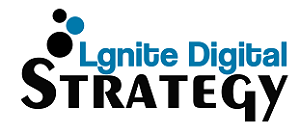In the modern era, more and more businesses have begun to move their operations digitally. Due to the COVID-19 pandemic, the trend of businesses moving online has accelerated greatly. As a result of this, many businesses have now begun to implement software solutions into their workflow. This can help businesses that now often have remotely distributed teams, to better work together and be more organized. In addition to this, many of these digital tools help with information management, which is essential to running an online business that seeks to make data-driven decisions. One of these digital tools that can move the needle for a lot of businesses in terms of their marketing, sales, and customer success efforts, is a CRM.
But what is a CRM? A CRM, which stands for a customer relationship management software, is a software that is used for managing a customer’s relationship with a business and analyzing their interactions with a business in order to make mo0re data-driven decisions. This can be used by sales teams, marketing teams, and customer service teams to find higher quality leads, market to the right buyer personas, and retain the customers that are acquired through various marketing and sales channels.
How marketing and sales teams can use a CRM
Both sales and marketing teams have many different uses for a CRM. For sales teams, a CRM can be used to capture data about both leads and customers. This can help them to build a customer profile and buyer persona to better help understand the type of leads they should be targeting. This can be helpful in focusing the marketing teams efforts, at sales and marketing are often at odds with one another. However, by using a CRM, the marketing team can then work with the sales teams on better targeting these buyer personas by sending those who fit that profile paid ads on social media, or even targeting those leads with more long-term tactics like SEO based on keyword research.
In doing this, marketing teams can also create whitepapers and PDFs that can be used as lead magnets, which allow for a free download in exchange for an email address. Sales teams can then follow up on this and work directly with a marketing team to target the right type of leads with this offer. They can then use the contact information provided to the marketing team that will be housed within the CRM to follow up with these hot prospects.
How customer success can use a CRM
Sales and marketing teams both have the common goal of contacting quality leads and turning them into paying customers. However, customer success teams want to make sure that the customer succeeds once the lead has become a customer, and their goal is to retain their business for years to come. This can be done utilizing the functionality of a CRM, as customer success team can record every interaction that customers have had qith a business. In doing this, they can start to identify areas of the customer onboarding or interaction process that have bottlenecks, and work to resolve these bottlenecks by not just individually addressing them, but by giving recommendations to other areas of the business in order to provide better service.
Overall, there are many benefits to a CRM. Marketing, sales, and customer success teams can particularly benefit from the numerous functions of a CRM by collecting and analyzing customer data. In doing this, they can better identify trends and work to target higher quality leads and retain customers due to structural problems with the company’s processes.









